Beschrijving
A pair of Weber Type 40 DCO3 carburetors for sale
Two pair available
Used on vintage Italian cars like the Maserati A6 series.
Need other Weber carburetor? Email us at info@saxonparts.com
Weber is an Italian company which produced carburetors; it is owned by Magneti Marelli Powertrain S.p.A., which is in turn part of the Fiat Group. Carburetor production in Italy ended in 1992, although Weber carburetor production was shifted to Madrid, Spain, where it continues today.
Edoardo Weber (1889–1945) began his automotive career working for Fiat, first at their Turin plant (in 1914) and later at a dealership in Bologna. After the war, with gasoline prices high, he reached a certain success in selling conversion kits for running trucks on kerosene instead.[1] The company was established as Fabbrica Italiana Carburatori Weber in 1923 when Weber produced carburetors as part of a conversion kit for Fiats. Weber pioneered the use of two-stage twin barrel carburetors, with two venturis of different sizes, the smaller one for low speed running and the larger one optimised for high speed use.
In the 1930s Weber began producing twin-barrel carburetors for motor racing where two barrels of the same size were used. These were arranged so that each cylinder of the engine has its own carburetor barrel. These carburetors found use in Maserati and Alfa Romeo racing cars. Twin updraught Webers fed superchargers on the 1938 Alfa Romeo 8C competition vehicles.
After Weber’s death in 1945, Fiat finally assumed control of the company in 1952. In time, Weber carburetors were fitted to standard production cars and factory racing applications on automotive marques such as Abarth, Alfa Romeo, Aston Martin, BMW, Chrysler, Ferrari, Fiat, Ford, Lamborghini, Lancia, Lotus, Maserati, Morgan, Porsche, Renault, Triumph and Volkswagen.
In 1986, Fiat also took control of Weber’s competitor Solex, and merged the two into a single company (Raggruppamento Controllo Motore, or the “Engine Management Group”). This was then reorganized as Magneti Marelli Powertrain S.p.A. in 2001 Genuine Weber carburetors were produced in Bologna, Italy up until 1992, when production was transferred to Madrid, Spain, where they continue to be produced today.
Weber Carburetors are sold for both street and off-road use, with the twin choke sidedraught DCOE being the most common one. They are sold in what is referred to as a Weber Conversion kit. A Weber conversion kit is a complete package of Weber Carburetor, intake manifold or manifold adapter, throttle linkage, air filter and all of the necessary hardware needed to install the Weber on a vehicle.
In modern times, fuel injection has replaced carburetors in both production cars and most modern motor racing, although Weber carburetors are still used extensively in classic and historic racing.

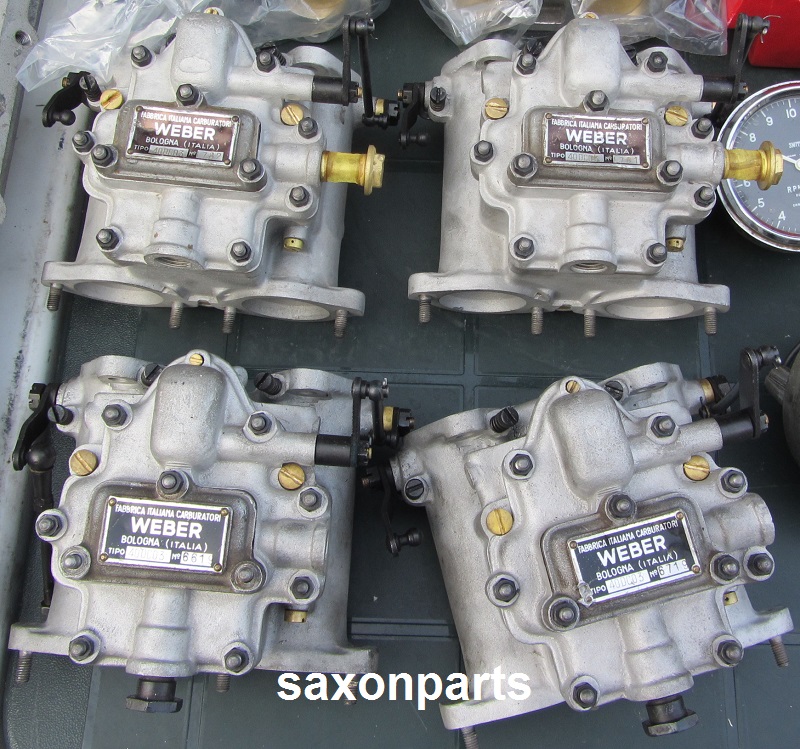
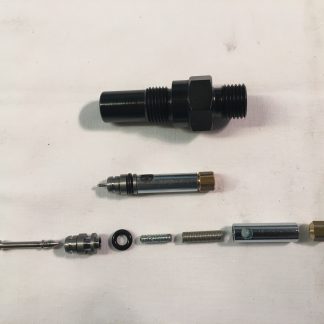
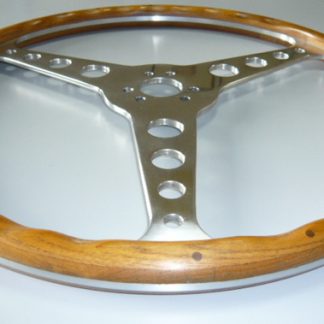
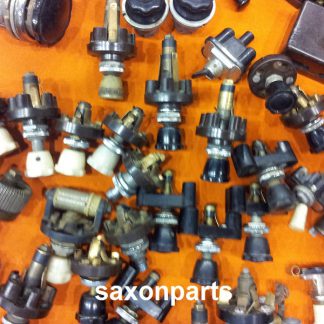
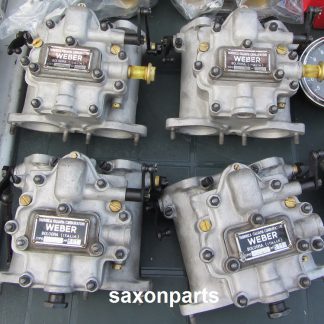
Beoordelingen
Er zijn nog geen beoordelingen.